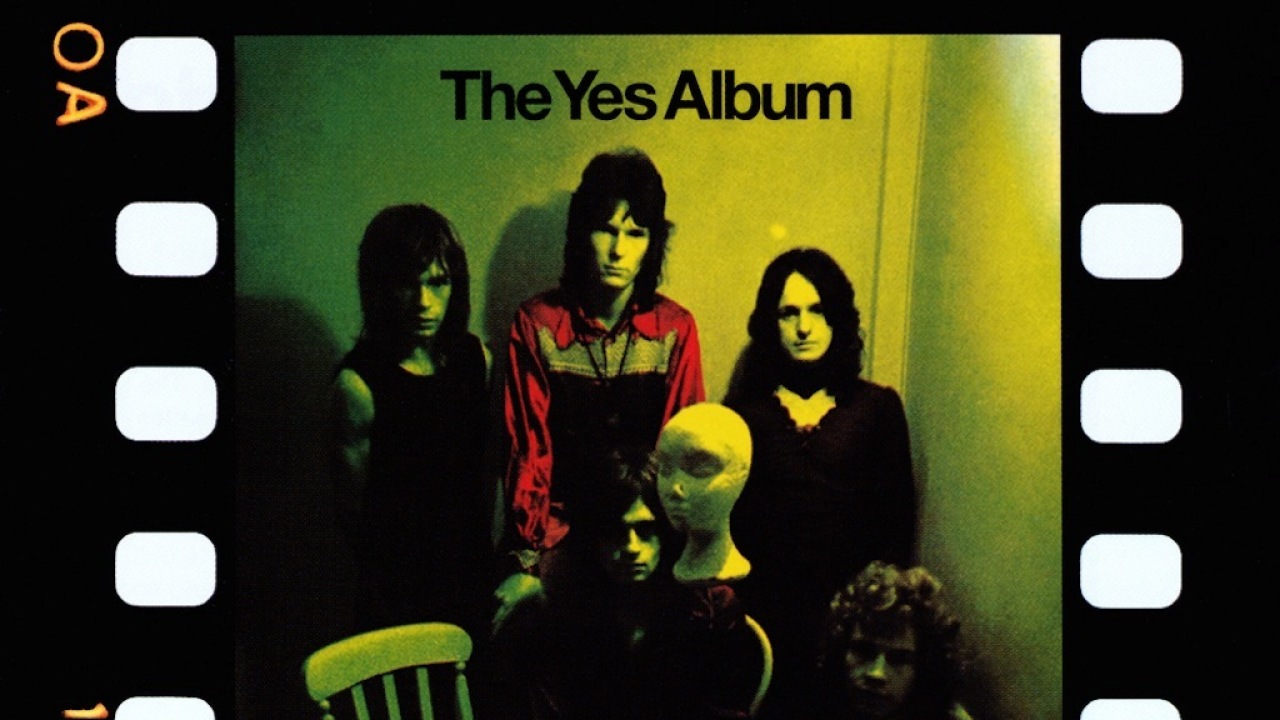“The Yes Album started a new plane for Yes,” Steve Howe said last year, “where we were completely original. Not doing other people’s songs, but creating our own music. When I joined, I said: ‘Isn’t it time Yes did the whole thing?’ They all felt the same.” First released in February 1971, Yes’ third full- lengther “felt like the first real Yes album” according to Jon Anderson. With Peter Banks having left, Howe came in with a dazzling scope of guitar sonics and styles while the band, skint and fed up of watching other bands they knew break big, jettisoned the stabilisers.
Co-producer and engineer Eddy Offord too played a vital role in their invention of a new post-psychedelia landscape. Like radical sculptors, they curved and warped the structure of their material until it offered resonant revelations in sound. The trippy trinity of Yours Is No Disgrace, I’ve Seen All Good People and Starship Trooper stand as evergreen Yes masterworks. Your ears enter them through fresh windows and doorways every time, even over four decades later.
Steven Wilson has upped the ante on those windows and doorways. After last year’s expanded re-master of Close To The Edge, this second in an ongoing series offers a wealth of reinvigoration. The CD includes a new stereo mix, with two bonus tracks: a longer A Venture (now nudging five minutes) and the studio version of Howe’s Clap. Thank goodness the new sleeve has dropped the unfortunate, erroneously-allocated definite article at last. The former allows the band to ad lib spectacularly, with the guitars and Tony Kaye’s keyboards duelling in the mode of relaxed flames. Howe’s acoustic guitar piece (written to celebrate the birth of his son Dylan, who now plays drums with Wilko Johnson) was never on multi-track tape, but Wilson has up-mixed it with modern software.
A hybrid DVD-A features his 5.1 surround mix and high-res stereo mixes, plus a version of the album compiled from alternate live and studio renditions. Then there’s a Blu-ray with all of the above, instrumentals, single edits and a needle-drop of an original vinyl pressing. If this is all getting a bit like taking in a maths lecture, here’s what matters: it sounds stunning.
The 5.1 brings out the nuances of every colour, like a restored Michelangelo. The Wurm section of Starship Trooper, for example, makes that chord cadenza ride the channels more gracefully and emotively than ever. It remains the flanger’s finest hour. Anderson’s fluency on Your Move and his visionary-nonsense generally, the shivery rhythms of Squire and Bruford on Yours Is No Disgrace, the swoops of Perpetual Change: all these stand strong under the lights. The musicianship is, to state the obvious, incredible. Nobody recognises that more than Wilson, who appreciates the then- young players’ giant act of affirmation and frames their gusto lovingly.
Prior to recording in the late 70s the band – getting to know Howe – “got away from it all” in Devon, renting a farmhouse in which they wrote, rehearsed and realised they could break the time-honoured rules of popular music. In the London studio, they then put down the tracks in sections and listened back to Offord’s ingenious assemblages. The artful eclecticism surprised even its creators. Even though Kaye’s subsequent departure (a Hammond aficionado, he wasn’t keen on emerging technology) and Rick Wakeman’s arrival marked what most believe to be the definitive Yes line-up, it’s a pity this quintet crafted only this one diamond, unique in its sparkle and flow. It was and is funkier, looser, than their later jewels, while always knowing where it’s going. It’s exploratory, but concise: so much happens, but every second counts.
The Yes Album gave the band their first number one (albeit thanks at first to a dubious chart, taken hurriedly from the Oxford Street Virgin store because of a postal strike), and sold a million. Yes were doing “the whole thing”, and this voracious music – still on its own plane – will not brook a no.

